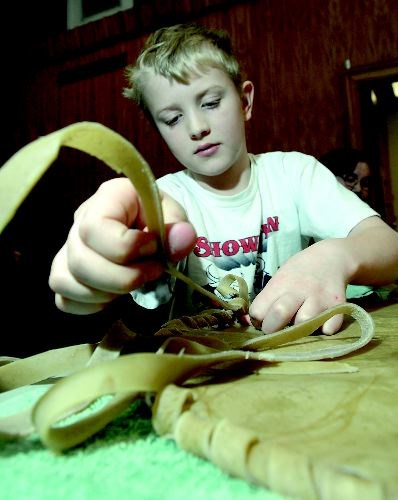The federal government's reinstatement of a fund for aboriginal youth programs has delivered some peace of mind for the local native friendship centre.
In June, Aboriginal Affairs and Northern Development Canada froze funding for the Cultural Connections for Aboriginal Youth program to allow a review of its terms and conditions.
According to a statement from ministry head John Duncan, the priority was to ensure the programs funded by the $22-million pot were "equipping young Aboriginal people with the skills and experiences they need to participate more fully in Canada's economy."
Under the revised terms of the fund, eligible programs for off-reserve youth aged 10 to 24 include initiatives that engage Aboriginal youth participation in the economy, projects that support youth in reducing barriers to that participation and projects that help young people to realize their leadership potential, said ministry spokesperson Michelle Perron.
Prince George Native Friendship Centre Barb Ward-Burkitt received word of the funding thaw on Monday morning in Whitehorse, where she is attending the annual general meeting for the National Association of Friendship Centres.
"We have about 350 delegates here from friendship centres across the country, so we're pretty excited because it's a huge impact," she said. "Just knowing that it's coming gives that sense of peace and well being to our young people in our communities and certainly to all of the amazing staff we have across this country that work with our young people."
The suspension of the money created uncertainty for resources that rely on the funds to run their youth programming.
Formal notice of the freeze came down June 12 and was retroactive to April 1, meaning first quarter expenses by funded organizations weren't reimbursed.
Ward-Burkitt said the Prince George centre was fortunate to be able to financially carry their youth program during the freeze, but that the strain came with the uncertainty for staff and whether the programming would be available in the long-term.
"Literally hundreds of youth in Prince George access different kinds of youth programs and services and youth facilities," Ward-Burkitt said. "So that uncertainty was really challenging, especially going in to the summer when many youth are looking for activities to keep them busy and activities that are cultural or positive."
In 2010-11, the friendship centre's Integrated Resources for Aboriginal Youth received $75,000 from the federal program.
"That funding provides us with so many opportunities to build that cultural capacity as well as build skill sets in other areas," Ward-Burkitt said, citing programming ranging from a focus on literacy to recreation.
There are also opportunities for leadership development, with young people having the chance to sit on provincial and national boards of directors.
"In fact a previous youth, who has just aged out, has been accepted to medical school and is starting in August," Ward-Burkitt said proudly.
In initiating the review of the Cultural Connections for Aboriginal Youth program, the ministry was looking to make sure the projects led to Aboriginal employment, but Ward-Burkitt said that focus is too narrow.
Building the capacity for a young person to understand culture and to be a leader leads to a readiness for employment, she said.
"And it really contributes to our young people wanting to go to school, wanting to get degrees, get that social background as well and knowing what the issues are in our communities. I think those all contribute to being good employees as well," Ward-Burkitt said.



